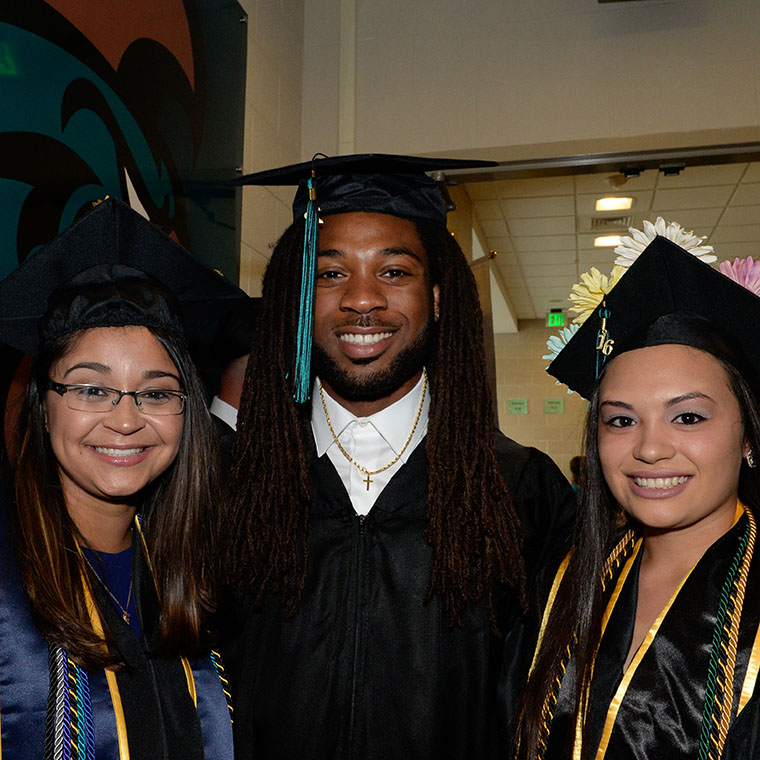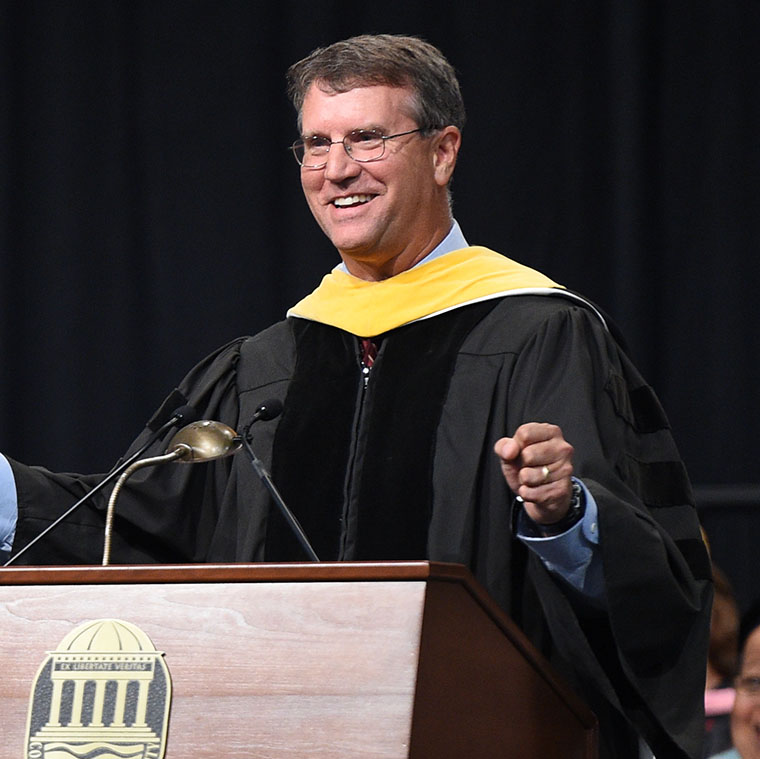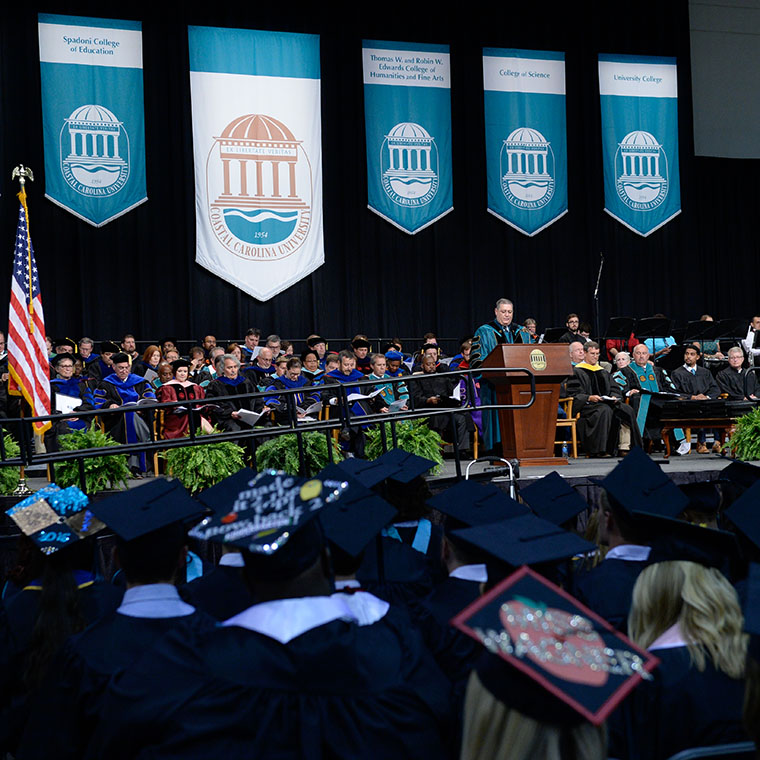Coastal Carolina University honors summer graduates
Young, professor of marine science at CCU, outlined three principles for students to follow as they begin a new chapter in their lives. More than 360 students were eligible to walk in the ceremony today, held at the HTC Student Recreation and Convocation Center on campus.
"First," he said, "do not define yourself by success, but by your values and your integrity. Success without integrity is pretty hollow and petty…. As anyone who has done anything hard will tell you, failure is an opportunity for growth. You cannot grow by doing only what you've done before. You grow be deciding to challenge yourself, to move outside your comfort zone. Do not pass on an opportunity because you fear failure."
Secondly, he challenged the graduates "to find a motivation that's bigger than you…. In everything you do, take ownership in the place and the people such that your service to them is your motivation, rather than your burden."
Thirdly, Young encouraged the graduates to have empathy and to approach conflicts by trying to understand those with opposing points of view. "The real hope for effective public discourse in this country relies in all of you making a personal commitment to try to understand at least some aspects of opposing viewpoints, to honor the integrity of others despite differences of opinion, to try to build on commonalities rather than hammer incessantly on differences, and move forward in earnest good faith even though you don't get everything you want."
Young, the 2016 recipient of the HTC Distinguished Teacher-Scholar Lecturer Award, is the state coordinator for the South Carolina Marine Mammal Stranding Network. His research and publications have focused primarily on the ecology of bottlenose dolphins in the southeastern United States and on the behavior, ecology and population biology of fishes in the southeastern U.S. He has developed and directed or co-directed numerous marine and environmental education programs for students and teachers at all levels.





